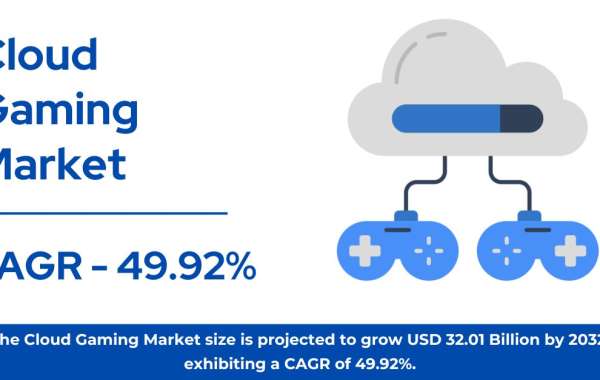Healthcare in Metaverse Market Overview:
The Healthcare in Metaverse market is an emerging sector that blends virtual reality (VR), augmented reality (AR), and mixed reality (MR) technologies with healthcare services to enhance patient care, medical training, and health-related research. This integration creates immersive digital environments that simulate real-world scenarios, offering significant advancements in diagnostics, treatment planning, and patient management. As digital health continues to evolve, the Metaverse presents innovative opportunities for remote consultations, virtual surgeries, and interactive therapy sessions, thereby transforming traditional healthcare delivery models. The global healthcare in Metaverse market is poised for substantial growth, driven by technological advancements, increasing healthcare expenditure, and a growing emphasis on patient-centered care. The healthcare in metaverse market size is projected to grow from USD 0.37 Billion in 2022 to USD 5.8 billion by 2030, exhibiting a compound annual growth rate (CAGR) of 48.3% during the forecast period (2022 - 2030).
Get a sample PDF of the report at –
https://www.marketresearchfuture.com/sample_request/10900
Competitive Analysis:
The competitive landscape of the Healthcare in Metaverse market is characterized by a diverse array of players ranging from technology giants to specialized startups. Key players include companies like,
- 8chili Inc (US)
- Brainlab AG (Germany)
- GE Healthcare (US)
- Novarad Corporation (US)
- Siemens Healthineers (Germany)
- Meta Platforms Inc (US)
- Nvidia Corporation (US)
- Microsoft Corporation (US)
- Roblox Corporation (US)
- Medtronic PLC (Ireland)
- Zimmer Biomet (US)
Microsoft, with its HoloLens technology, and Oculus by Meta, which are pioneering immersive VR platforms tailored for medical applications. Additionally, startups such as Osso VR and Surgical Theater are innovating with advanced surgical simulation and planning tools, enhancing the precision and outcomes of surgical procedures. The market is also witnessing collaboration among tech companies and healthcare providers, aiming to integrate Metaverse technologies with existing healthcare frameworks. These partnerships are crucial in developing scalable solutions that address clinical needs and improve healthcare delivery.
Market Drivers:
Several factors are propelling the growth of the Healthcare in Metaverse market. Firstly, the increasing adoption of VR and AR technologies across various sectors has significantly lowered the cost and enhanced the accessibility of these technologies, making them viable for healthcare applications. Secondly, the COVID-19 pandemic has accelerated the demand for remote healthcare solutions, driving the adoption of telemedicine and virtual care platforms. The Metaverse offers a compelling solution by enabling immersive virtual consultations and remote surgeries, reducing the need for physical visits and enhancing patient convenience. Moreover, the growing focus on medical education and training is fueling the development of VR-based simulation platforms, providing medical professionals with hands-on experience in a risk-free virtual environment. These drivers collectively enhance the market's growth potential, making the Metaverse an integral part of future healthcare systems.
Market Restraints:
Despite its promising prospects, the Healthcare in Metaverse market faces several challenges. The high initial investment required for Metaverse technologies, including hardware, software, and content development, poses a significant barrier for many healthcare providers, especially in low- and middle-income countries. Additionally, concerns regarding data privacy and security are paramount, as the integration of virtual environments with patient data raises potential risks of cyberattacks and data breaches. Regulatory challenges also persist, with existing healthcare regulations and standards often lagging behind technological advancements, complicating the deployment and scalability of Metaverse solutions in healthcare. Furthermore, the lack of standardized protocols and interoperability between different Metaverse platforms and existing healthcare systems hampers seamless integration, limiting the full potential of these technologies in clinical settings.
Segment Analysis:
The Healthcare in Metaverse market is segmented based on technology, application, and end-user. Technology segments include VR, AR, and MR, with VR leading due to its immersive capabilities, followed by AR and MR, which enhance real-world interactions with digital information. The application segment covers areas such as surgical simulations, medical training, mental health therapy, remote consultations, and patient education. Among these, surgical simulations and medical training hold the largest share, driven by the need for advanced training tools and the desire to enhance surgical precision and safety. The end-user segment includes hospitals, clinics, research institutions, and patients. Hospitals and clinics are the dominant end-users, adopting Metaverse technologies for training, patient care, and operational efficiency. Research institutions are increasingly using VR and AR for medical research and development, while patients benefit from virtual consultations and therapeutic interventions.
Browse a Full Report –
https://www.marketresearchfuture.com/reports/healthcare-in-metaverse-market-10900
Regional Analysis:
Regionally, North America holds the largest share in the Healthcare in Metaverse market, driven by the high adoption rate of advanced technologies, substantial healthcare expenditure, and the presence of key market players. The United States, in particular, is a hub for technological innovation in healthcare, with significant investments in VR and AR research and development. Europe follows, with countries like the UK, Germany, and France showing robust growth due to supportive government policies, increased healthcare spending, and the presence of major healthcare and technology firms. The Asia-Pacific region is emerging as a promising market, fueled by increasing healthcare digitization, rising investments in healthcare infrastructure, and a growing population with a high prevalence of chronic diseases. Countries like China, Japan, and India are witnessing rapid adoption of Metaverse technologies in healthcare, supported by favorable government initiatives and expanding healthcare budgets. The Middle East and Africa, along with Latin America, are gradually advancing, with increasing focus on telemedicine and digital health solutions, though challenges such as regulatory hurdles and limited healthcare infrastructure remain significant.
The Healthcare in Metaverse market is at the cusp of a transformative era, driven by technological advancements, increased healthcare demand, and evolving patient expectations. While challenges such as high investment costs, regulatory barriers, and data security concerns persist, the ongoing innovations and collaborative efforts among stakeholders are paving the way for a future where healthcare is more accessible, efficient, and patient-centered. As the market continues to evolve, stakeholders must navigate these challenges strategically to unlock the full potential of the Metaverse in revolutionizing healthcare delivery and outcomes.
Top Trending Reports:
Privileged Access Management Solutions Market
Contact
Market Research Future (Part of Wantstats Research and Media Private Limited)
99 Hudson Street, 5Th Floor
New York, NY 10013
United States of America
+1 628 258 0071 (US)
+44 2035 002 764 (UK)
Email: sales@marketresearchfuture.com
Website: https://www.marketresearchfuture.com
![Healthcare in Metaverse Market Size, Share | Growth Analysis Report [2032]](http://storytellerspotlight.com/upload/photos/2024/07/yELLe3NLwKwCrIXP9tyI_31_3b82323c3e1af5046121d502f9241247_image.png)







